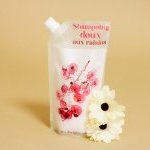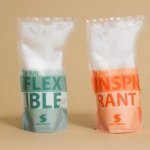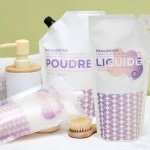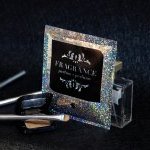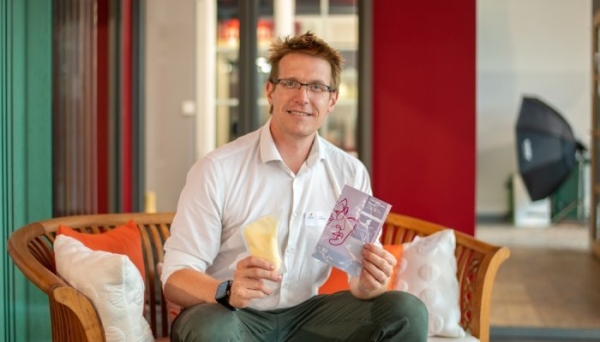
With its patented technology applicable to various recyclable materials, Sealester offers the cosmetics and ecorefill market a range of sustainable, premium flexible packaging solutions.
Sealester, a French company specialized in flexible packaging, was founded in 2020 by Clément Fourmaux and two partners from the DeltaNeo group, based on an innovative, patented digital welding technology. This technology can be used to assemble a wide variety of materials in free shapes, from prototypes to large production runs.
“The traditional welding method requires large-scale production for the tooling to pay for itself. Our technology breaks down these barriers. Because it works like a 3D printer, it is relevant right from the prototyping phase. We can program our tool to make a weld for one or two models, test certain phases, and then move on to mass production. We can work flexibly from a single model to production runs of several hundred thousand parts”, explains Clément Fourmaux.
Priority to recyclables
The Sealester ranges focus on two types of materials: those based on paper fibre composites combined with a polymer film, and those made from polyethylene. In both cases, the aim is to make it all recyclable, either with a sufficient fibre/plastic ratio, or because of the single-material composition.
As far as composites are concerned, the company works with various film manufacturers in France and Italy. “It is always a combination of paper and polymer with as high a fibre ratio as possible, so it can be recycled in the paper industry. We chose to comply with Citeo’s specifications, which set the minimum fibre content at 51%. In practice, we are at 75% and trying to go up to 80% with more resistant fibres, but the applications need to be validated. We are also actively looking for polymer-free solutions with even more fibres, but right now they do not meet the mechanical strength specifications”, says the manager.
The bestseller Sealester is a paper-based mix of apple fibres that gives a textured feel and a high-end appearance. “For this range, we have worked on technical solutions to meet specific needs. Two years ago, we were the first to offer liquid refills with a paper base, and we are still the market leader,” notes Clément Fourmaux.
These new materials combine several key advantages. They offer advanced protection against humidity, UV rays and oxidation, ensuring the safety of care products. They are also recyclable, in line with the ecological commitment of Sealester and its customers.
At the Paris Packaging Week, the company also showcased the new Lauri pack, a large-capacity design for 750ml- or 1-litre composite refills with improved mechanical strength.
“In general, when you increase the volume of flexible packaging, you increase the thickness, and therefore lose out on ecodesign. This solution meets both the strength and ecodesign criteria”, explains the co-founder.
Premium embellishment
The final asset of Sealester flexible solutions is decoration, one of the weaknesses of traditional flexible packaging.
Sealester offers a range of papers with sophisticated textures and finishes, including swelling varnish, metallization, hot foil stamping, and embossing. “Embellishment is an important point for these products. We are keen to provide solutions that comply with cosmetics codes, for brands that do not want to damage their image by using this type of packaging,” says Clément Fourmaux.
The only obstacle pointed out by the Chairman is the price. “Some of these refills are more expensive than the bottle, because in the field of flexible packaging, each project is a unique piece requiring specific printing and calibration. But that is something we have been working on,” he concludes.
|
This article was published in our special issue Beauty Packaging Innovation. Full text available here. |
Portfolio
